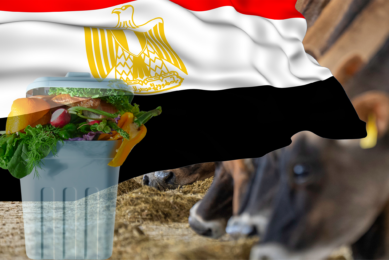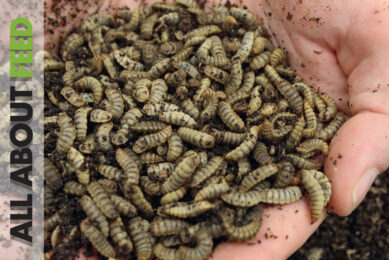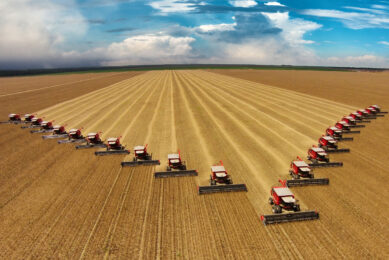“Effective climate solutions require Agri & food parties to work closely together”

On 10-11 May, the Agri-Food & Climate Circle conference will take place in Denmark. An event that will unite the industry to share knowledge and develop solutions that will reduce the climate footprint of the agricultural and food sector. All About Feed talked with Lisbeth Henricksen about this new event and her perspective on how to reduce the climate footprint.
All About Feed: The goal of the event is to unite the agri-food industry in the strive to reduce climate footprint. Why did SEGES feel the need to organise this new event on this topic?
Lisbeth Henricksen: For the first time ever, the Danish conference brings together companies and researchers from all over the world to develop effective solutions that can reduce the climate footprint of the agricultural and food sector. It is of no use that researchers and companies around the world are each trying to invent the deep dish to reduce the climate footprint of the agricultural and food sector. Effective climate solutions require the parties to work closely together across national borders and sectors. SEGES Innovation will now bring together the world’s companies, researchers and decision-makers in the field of agriculture and food.
The climate challenge is large and complex, and there is no time for us all to sit in each of our own corners and try our best. We need to work closely together across sectors and national borders to create effective climate solutions that can be implemented by farmers worldwide. With the conference, we want to create a platform for this change.
What are the current trends and challenges for the industry regarding the climate footprint?
Reducing the climate footprint of our food production, while ensuring a sustainable production is a global challenge, we all need to work on solving. Across the agri-food industry, scientists, experts and companies are working hard to identify pathways combining new knowledge, technologies and strategies throughout the production chain to lower the climate footprint while meeting market demands. In Denmark we are committed to pushing this development by leading the way in sharing and implementing knowledge from science and research to practice.
We need to accelerate the development of new knowledge, solutions and products to reduce GHG emissions even further.
 Do you think Denmark is a front-runner when it comes to reducing the footprint and sustainable agriculture?
Do you think Denmark is a front-runner when it comes to reducing the footprint and sustainable agriculture?
Denmark has a unique potential to become an important driver within the green transition of agriculture, land use and food clusters. We have a particularly strong international image in terms of sustainability, animal welfare, traceability, food quality standards and low environmental impact of food production.
Firstly, this potential derives from a long tradition of collaboration across the food value chain and from building an innovative and knowledge-intensive sector based on close collaboration between large multinational companies and small innovative start-up businesses, authorities, innovation clusters, NGOs, and research institutions.
Secondly, Denmark has a proven track record of responding constructively to challenges within the sector.
Can you give some examples?
Examples include major reductions in use of pesticides and antibiotics in Danish agriculture compared to similar countries, 50% reduction in N loads to the aquatic environment over 30 years, and a doubling of organically farmed land within the last 12 years.
We have a unique tradition for data generation and technological development and implementation at all levels in the production system from field to fork, including efficient use of resources throughout the product chains. These include unique collaboration among actors that make data available for research and development, e.g., for selective breeding in animals and plants. Danish assets also include development of new precision farming technologies facilitating a management approach that focuses on real-time observations, measurements, and responses to variability in crops and animals, and a strong position in the food ingredients and biotechnology sector.
Climatic conditions, soil quality and the flat Danish landscape make Denmark a superior country for farming, even under projected climate changes. The collaborative approach between research institutions, industries and the public sector makes joint efforts for sustainable solutions, based on negotiated changes in land use and management, feasible for the benefit of multiple functions. Considering the strong platform that we stand on and taking part in new innovative ideas and disruptive thinking, Denmark is in a unique position to develop and implement the green transition of the agricultural sector and food industry.
What are your thoughts on sustainable animal-based food production?
We need to ensure the production of the most climate-efficient animal-based food products in the world to accommodate and meet a growing worldwide demand for animal-based proteins and foods. A diet with a low carbon footprint will, therefore, also in the future include animal-based products such as dairy, meat and eggs.
And what do you think of alternative sources of protein, do you think there will be a shift to more alternative and plant-based proteins in the future, instead of animal proteins?
A more plant-based diet with less meat than the current Western diet has significantly lower greenhouse gas emissions and reduces the pressures on land use, environment, water resources and biodiversity. More and more consumers are becoming aware of this and the global demand for plant-based food is therefore increasing. Other alternative protein sources and biotechnology-based food products can also be produced with a lower climate footprint and will essentially also be required for feeding the growing global human population.
What will be the key topics and themes that you will focus on during the conference? And why did you choose these topics?
The conference’s 7 themes are documentation of green initiatives, optimal resource utilisation, consumer influence on green transition, sustainable use of the land, sustainable livestock production, shift to more vegetable protein and biotechnology as an alternative source of protein.
The inspiration for choosing the 7 themes comes from the report ‘AgriFoodTure – roadmap for a sustainable transformation of the Danish agri-food system’. This report was jointly written and submitted by around 300 researchers and experts from all Danish universities and several development organisations in the Danish food cluster in connection with Innovation Fund Denmark’s Innomission 3 call in April 2021.
Could you tell a bit more about the Marketplace for Green Transition Ideas? That is also part of the programme.
The ideas have been collected through an open call for green ideas. It is the first time that such a systematic collection of ideas has taken place on a global scale, and the Scientific Committee has now selected 15 ideas that are presented in oral pitches at the conference. In addition, a further 45 of the submitted ideas have been selected for a so-called marketplace for green ideas, where they are presented via posters. The 60 ideas come from 12 different countries.
The selected ideas fall within the conference’s 7 themes, which are documentation of green initiatives, optimal resource utilisation, consumer influence on green transition, sustainable use of the land, sustainable livestock production, shift to more vegetable protein and biotechnology as an alternative source of protein.
What do you hope that the outcome of the event will be? What would make it a success?
We hope our attendees will gain new knowledge and increase their network from attending the conference. We also hope new partnerships will form, where academia, companies and others will join forces and i.e., seek funding for new projects and other activities.
Finally, I hope the conference will contribute with positioning Denmark and the Danish agri-food sector as proactive and a frontrunner when it comes to reducing greenhouse gas emissions.
The Agri food climate circle is a new event, is it an one-time only event or will it be a returning event?
The plan for the conference is to be biannually going forward.











